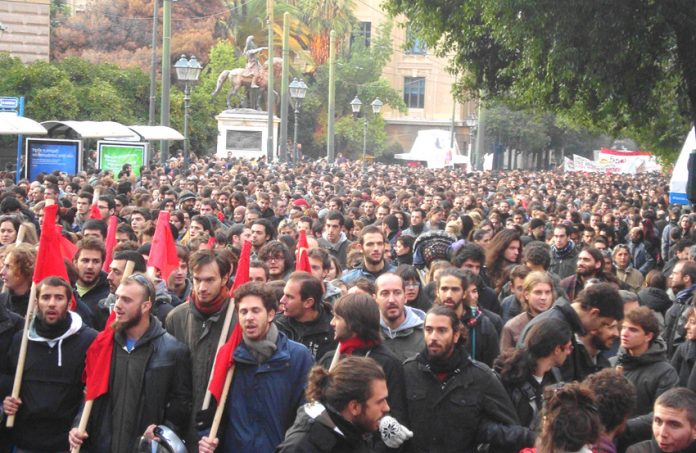FIGURES released yesterday showed eurozone unemployment hit a new record high in June, with a jobless rate of 11.2% and 17.8 million people out of work.
The total was up two million from a year earlier.
The highest unemployment rate in the eurozone was in Spain, at 24.8%, while in Italy the rate hit a 13-year high of 10.8%, with 2.8 million Italians out of work, the highest in 13 years.
The rate, up from 10.6% in May, was released by Italy’s National Institute for Statistics (Istat) yesterday.
Istat said that Italian youth have been hit the hardest, with joblessness among the people aged 15 to 24 standing at 34.3% in June.
The data revealed that about 2.8 million Italians were looking for work in June, a 37.5 per cent increase compared to the same period last year.
However, Italy’s Prime Minister Mario Monti claimed yesterday that he sees ‘light at the end of the tunnel’ on the eurozone debt crisis.
Speaking ahead of meetings in France, Finland and Spain to discuss attempts to ‘secure the euro’ by lowering borrowing costs for Spain and Italy, Monti said he hoped his meetings would help ‘secure the euro and give a decisive boost to European growth.
‘We and the rest of Europe are approaching the end of the tunnel,’ he claimed on Italian radio before travelling to Paris for a meeting with French President Hollande.
Monti has imposed vicious austerity measures since his appointment as an unelected ‘technocrat’ prime minister, last November, following the resignation of the Berlusconi government.
His government has forced through deep spending, pension and public sector job cuts in Italy.
Now he is relying on the eurozone’s bailout fund being authorised to buy government debt from Spain and Italy – a measure agreed at last month’s European Union summit.
Over the weekend, a joint statement from German Chancellor Angela Merkel and French President Francois Hollande seemed to indicate that Germany had softened its opposition to using the ECB and European bailout funds to buy government debt.
However, Finland is maintaining its opposition to the plan and is sceptical about the Monti government’s ability to impose the agreed spending cuts which are a condition of the injection of European funds into the Italian economy.
Monti said: ‘It is very important that all of us in Europe, regardless of latitudes, see to it that the euro . . . does not become a cause of disintegration.’
